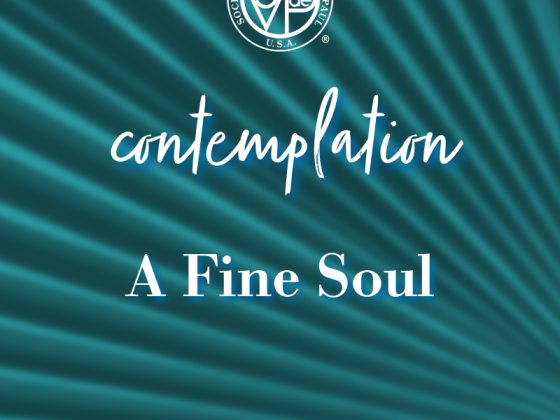By Timothy P. Williams
National Director of Formation
Virtue, our catechism teaches, is a “habitual and firm disposition to do good.” [CCC: 1833] The good deeds themselves are not the virtue; they are, or should be, the fruits of our virtue. From our virtue of charity comes our practice of generosity; from our virtue of gentleness comes our practice of kindness and patience, and so on. Attaining virtue, though, can come from performing the acts – we become by doing. As Aristotle put it, if you want to become a builder, you build. By extension, if you want to attain virtue, you behave virtuously. Perhaps that’s just a fancy way of saying “fake it until you make it.”
Is it necessary, though, to practice and attain every virtue? Is that even possible? St. Francis de Sales, a friend and mentor of St. Vincent de Paul, argued in his Introduction to the Devout Life that “Every calling stands in special need of some special virtue… and although all should possess every virtue, yet all are not called upon to exercise them equally, but each should cultivate chiefly those which are important to the manner of life to which he is called”, and that from among the other virtues, we should “choose the most excellent, not the most showy.” For example, he explained, most people will choose material almsgiving rather than spiritual, or choose fasting rather than gentleness or cheerfulness, even though in both cases, the latter choice is the better one. [IDL, 126-127]
St. Vincent reinforced this point in a conference for the Daughters, asking, “Do you think, Sisters, that God expects you simply to bring His poor persons a piece of bread, a little meat, some soup, and some medicine?” Certainly, the bringing of food is virtuous, but is that our primary calling? Is that enough? “Oh no,” Vincent answers, “that wasn’t His plan in choosing you from all eternity to render Him the services you do for Him in the person of the poor. He expects you to provide for their spiritual needs as well as for those of the body.” [CCD IX:189] We are chosen, we are called, into this Vincentian vocation to attain not only virtue, but holiness. As our patron Saint teaches, we do this by dedicating ourselves to the interior virtues, the higher virtues.
St. Vincent gave to us our five Vincentian Virtues, the ones that St. Francis would tell us are important to the manner of life to which we are called. We seek first to practice simplicity, humility, gentleness, selflessness, and zeal in all of our works in the hopes of becoming truly simple, humble, gentle, selfless, and zealous in our passion for the full flourishing of every person. This is our calling, our vocation. Our Home Visits, as Frédéric often explained “should be the means and not the end of our association.” [182, to Lallier, 1838]
Holiness is a lofty goal, and if it feels overwhelming, we will do well to “reflect on the grandeur of God’s plan for you: that He wants you … with little ability or education, to cooperate with Him in communicating His Spirit!” [CCD IX:189]
Contemplate
Do I sometimes focus more on my external acts than on my inner formation in virtue?




Excellent, as always.
Thank you.